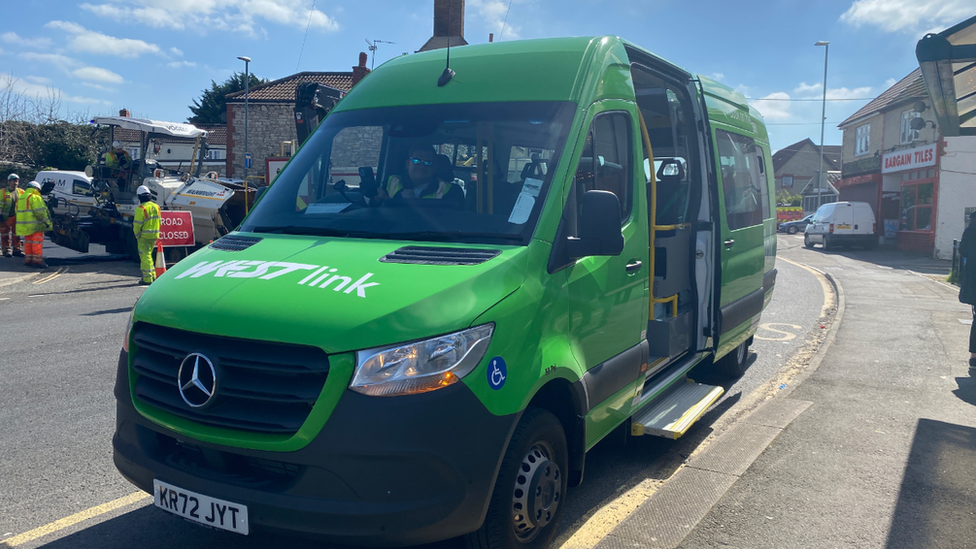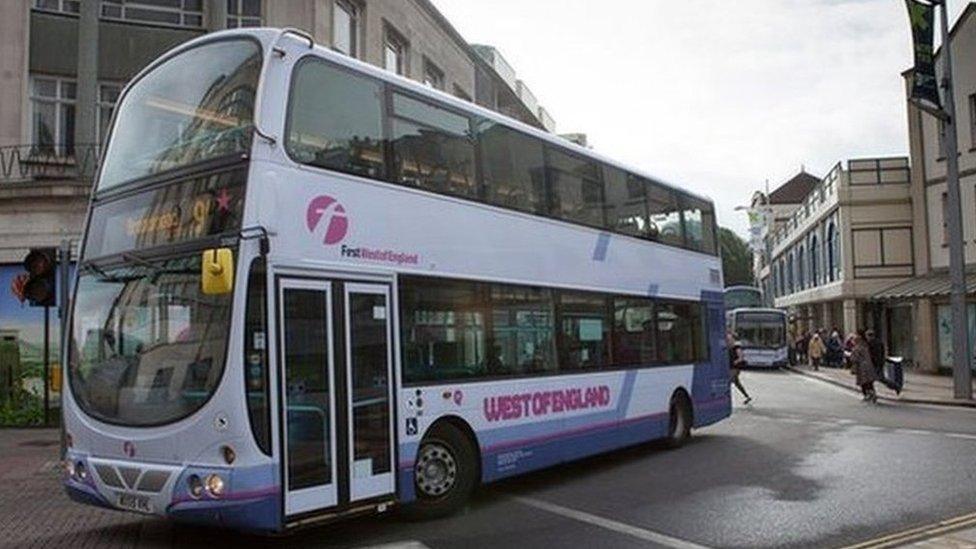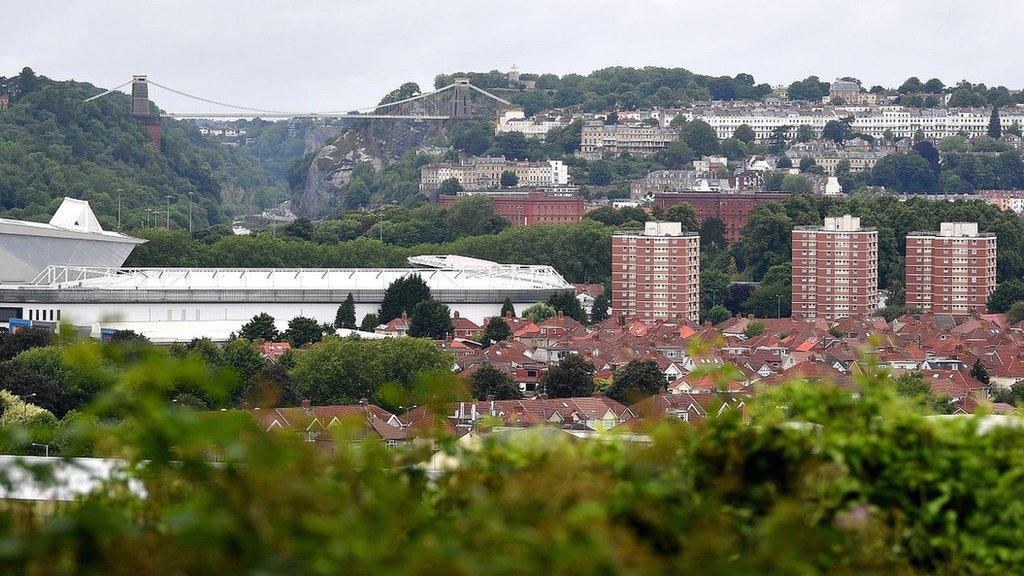Changes to Westlink dial-a-ride minibus scheme
- Published

From April, the transport zones for the Westlink bus scheme will be reduced
Plans to change parts of a dial-a-ride scheme have been announced.
Run by the West of England Combined Authority (Weca), the Westlink minibus service allows passengers to book a trip on an app which then takes them to existing bus routes for a £2 fare.
However, the scheme has faced several problems including a shortage of drivers.
From April, the transport zones will be reduced, stopping passengers from booking excessively long trips.
Speaking to councillors on the Weca audit committee on Monday, Bob Scowen, interim head of integrated transport operations, said there will be "changes to zones" and some improvements to through-ticketing arrangements.
The through-ticketing means passengers will be able to book just one ticket for a journey involving more than one bus ride, instead of paying for each ride.
'Launched at worst possible time'
"If an alternative bus service exists already, then you have to take that rather than take the whole journey from A to B on the minibus," he added.
Addressing concerns about the scheme, Mr Scowen said it was "launched at the worst possible time" due to a lack of bus drivers across the country and at a time when almost half the subsidised bus routes in the West of England were withdrawn due to councils deciding they could no longer afford to support them.
Mr Scowen said the service "wasn't a direct like-for-like replacement" and it was designed to "complement the existing network".
"It's been unfairly blamed in many ways, for something it could never deliver in the first place," he added.
According to the Local Democracy Reporting Service, the Westlink scheme has faced teething problems from its outset, with some passengers struggling to book trips.
'Abusing the service'
Councillor Tim Rippington said he got the impression that the scheme "wasn't really ready" and was "rushed".
He said: "You didn't really have enough drivers, the vehicles had to be prepared very quickly, and part of the fallout from that was the service didn't really work in a way that it was supposed to."
Meanwhile, councillor Toby Simon said he understood that some users "abusing the service".
Funded by the government's bus service Improvement plan until March 2026, for it to continue beyond, the scheme will have to pay for itself or face being scrapped altogether.

Follow BBC Bristol on Facebook, external, X, external and Instagram, external. Send your story ideas to us on email, external or via WhatsApp on 0800 313 4630, external.
Related topics
- Published26 January 2024

- Published4 December 2023

- Published30 December 2023
